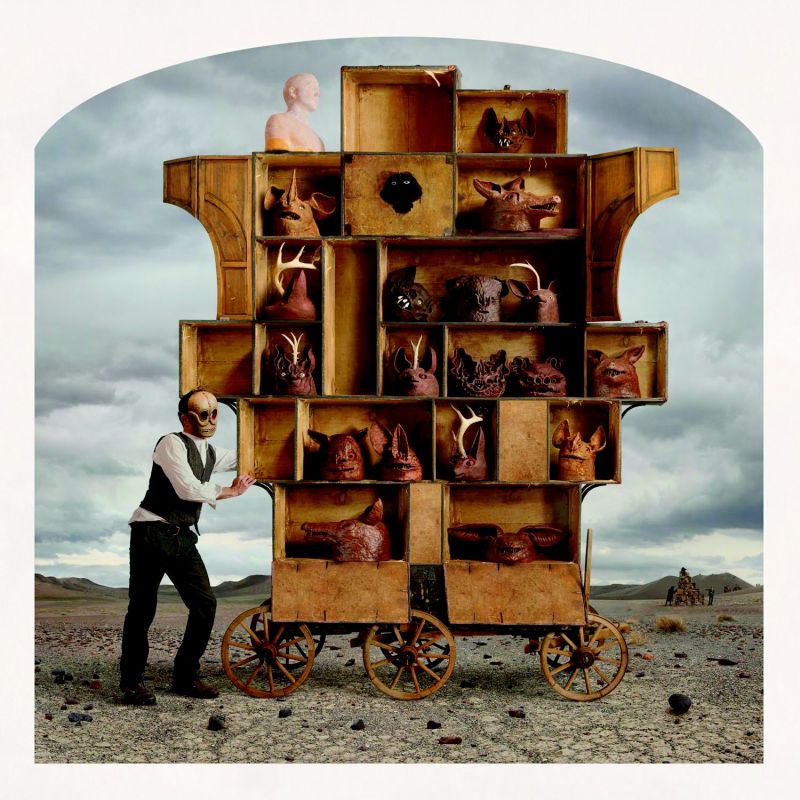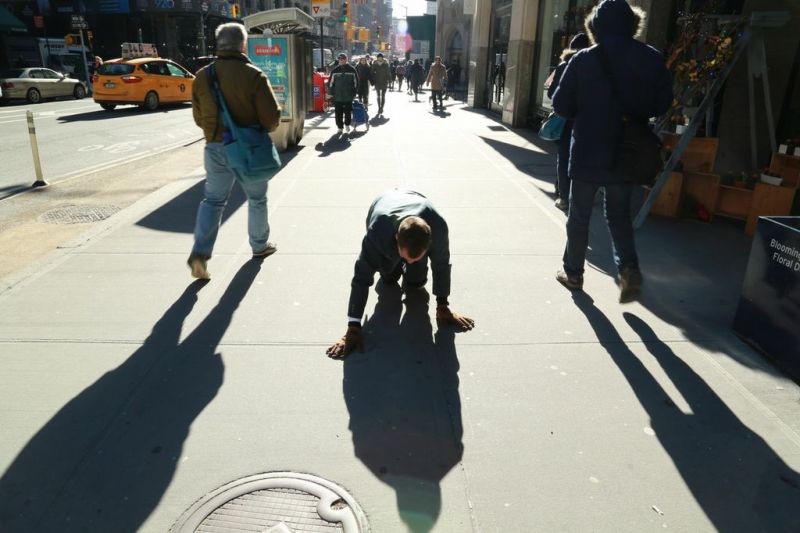Under the Volcano
On a mountain in Wales in the teeming rain, we sit in a yurt packed with people, the five of us, on hay bales, dressed in black suits and bowler hats. One of us has a pack of cards up his sleeve, another an African folktale, another a guitar and a song by Nick Drake from the 1970s. I have oak leaves in my hatband to signify an instruction circa 600 BC from the Sibyl who once guarded the door to the Underworld in the ‘Campi Flegrei’ outside Naples.
A link to the pre-patriarchal ‘uncivilised’ world, she guides a lineage of poets to the territory under the volcano where all deep transformations take place: Virgil,Dante, T.S. Eliot, Mary Shelley, Sylvia Plath. Denied immortal youth by the autocratic Apollo, her desiccated body kept in a jar, only her voice is still left for us to follow.
One of us, Dougie, stands up and invites the audience to take part in a demonstration of two figures from the ancient world: one is Chronos, the inexorable march of linear time; the other is a young man with a lock of hair over his forehead, who intervenes and interrupts him. His name is Kairos, and sometimes ‘Possibility.’
We’re giving a performance called ‘Testaments of Deep Time’ to introduce the work of The Dark Mountain Project—itself an intervention into the linear narrative about ecological and social calamity. As the rational world attempts to control the consequences of its dominant storyline, cracks have begun to appear.
Through those cracks, archaic, indigenous knowledge, hidden for safekeeping against Roman and other empires, slips through, and fleeting glimpses of another future reveals itself.
This encounter, we know, is what changes everything.
Dark Mountain was launched in 2009 to challenge the contemporary lack of response by culture makers to ecological overshoot in the aftermath of the 2008 financial crisis. Its manifesto was called simply Uncivilisation.
Many people picked up this gauntlet, recognising it, not as a challenge to a duel but as an invitation to explore a territory yet unmapped. This invitation has led to collaborations with writers, musicians and artists; 12 books and five festivals; a year-long theatre workshop in Sweden; teaching encounters in the mountains of Spain and the moors of the West Country; and performances built around the celebrations of the solar year by the River Thames and the ancestral wilderness of Scotland—and now in Wales.
What distinguishes Dark Mountain from grassroots Earth-defending organisations and progressive movements is that it is a creative response to prevailing crises—and lacks an evangelical agenda to fix them. The project’s manifesto can act as a frame, but there is no drive to act in the space that frame creates—no pressure to shut down power stations or convince your neighbour to stop flying, or your community to reduce its carbon emissions.
Instead, it provides a space that has room and time in it, where the 24/7 broadcast of progress can be switched off and other voices apart from the mainstream can be heard; it gives an opportunity to look at things differently, and for other slower realisations to occur—for interactions, connections and deep thought as a reader, listener or contributor.
‘Are you against environmental activism?’ I was asked recently by a television researcher. ‘No,’ I said ‘We’re not against anything. It’s a conversation not an argument. We’re a creative network.’

This rallying point, the agreement to ‘look down’ and acknowledge that we sit on a crater’s edge rather than a firm foundation, not only creates a different literature but also nurtures a very different feeling towards that literature and those who write it. If there is one shared response to the contacts made by people towards the project it is the sense of relief and comradeship in a world where a possible eruption of the status quo is manifestly denied.
However there is no mantra or belief system to take refuge in here. Dark Mountain is a collective work-in-progress, initiated by ‘recovering journalists’ disillusioned by the green movement and its timid approaches toward change. It doesn’t offer a road map for a sustainable future but can offer you a place by the fire, an opportunity to dig beneath the distracting surface of industrial late capitalism; to produce work that asks the question, ‘how can we reclaim the voice and body of ourselves that has been suppressed by civilisation for millennia. The deadline is never far away.
The fact is we all know that “the boat is leaking and the captain lied” as Leonard Cohen once sang; we know the statistics about climate change and acidified oceans and decapitated mountains. The news that the numbers of kittiwakes on St Kilda have plummeted or that the ancient trees of Sheffield have been felled pains us. We don’t numb out that pain, nor do we indulge it in the see-saw of hope and despair.
We know the Earth is not an abstract concept of environment or ‘nature’ and requires a very different relationship, one that wrests the material of life out of the hands of the ‘quants’ and economists and gives it due respect. The question we face is always: what do you do when you know, when you allow yourself to see and feel what is shut out by the broadcast of progress? You can’t keep writing conventional love stories and detective novels, hoping that Hollywood will get in touch.
What kind of literature and art does this awareness produce? A diverse body of work that does not fit neatly into a monocultural, corporate bookshelf or gallery wall. Inspired by the inhumanist poetry of Robinson Jeffers, its voices do not come out of a narcissistic and alienated highbrow culture, discussed by the chattering classes of Boston or London, but from a library of stones, from the desert and forest hermitage, from conversations around convivial fires.
This space is existentialist, ringed as it is by urgent questions about what kind of human being can be so numb or so dumb in the face of catastrophe; its tone is elegiac rather than triumphant. In many ways it returns the artist and writer to their original function, as people who push the edge and keep the door of possibility open. People who embody and stand by their words, for whom those fiery brimstone fields are home.
It’s in this spirit that we’ve created a new work called Walking on Lava, taken from our first ten hardback journals as a showcase introduction. Following their shape it is made of work of contrasting voices and genres—poetry, flash fiction, essays, artworks, photography and interviews—and structured around the manifesto’s ‘Eight Principles of Uncivilisation.’
Here are Robert Leaver crawling along Broadway in New York on his hands and knees; Christos Galanis shooting a thrift store copy of the Iliad in the New Mexico desert; and Emily Laurens sweeping the brown sands of the Welsh peninsula in honour of the disappeared passenger pigeon and the millions of species now becoming extinct—testimony, encounter, protest art and praise song of a different kind.

What happens when you get bitten by a squirrel, or when you return to your homeland now crawling with bulldozers and fracking trucks? When the story you were told by your teachers and parents is broken, when the Earth makes contact with you, you may stumble upon art with a different kind of attention: a feral stew of roots and road killed pheasant in the highlands of Scotland, a dreaming woman carrying a horse in her womb in Cornwall, a meditation on graphite in the winter-wet Cumbrian hills.
Kairos, the daemon of opportunity, had a shaved head, meaning that you had to grasp the moment that faced you, for once the light-footed one had disappeared the chance to see in all-at-once-time had also gone also. There are only so many opportunities to sense the volcano that rumbles beneath us. Rarely do we find the way to the cave where the Sibyl sits, or pay heed to those who struggle to return from the darkness of the Stygian lake.
We live, as Marshall McLuhan once noted, in a third world war of narratives, of competing controlled ways of perceiving the world, all of them hostile to people and planet. In the quiet, in the depths, in the wild places, in the struggle of our hearts, writers and artists—those who have always kept a true link to the wider, wilder world—are forging another story. We hope that Walking on Lava will show how some of that new collective tale is unfolding.
This article is printed here with permission. It originally appeared in the Transformation section of OpenDemocracy. Transformation tells the stories of people who are combining personal and social change in order to re-imagine their societies. Charlotte Du Cann is part of the core editorial team behind The Dark Mountain Project, working as an editor, art editor, event curator and distributor. She writes about mythology, metaphysics and cultural change and teaches collaborative writing. She is the author of 52 Flowers That Shook My World – A Radical Return to Earth and other non-fiction works. You can find a selection of her writings here.


On May 22, 2018 Patrick Watters wrote:
Humanity has been seeking since the dawn of their time. Divine LOVE is both the object of our search, and the force behind it. }:- ❤️ anonemoose monk
Post Your Reply